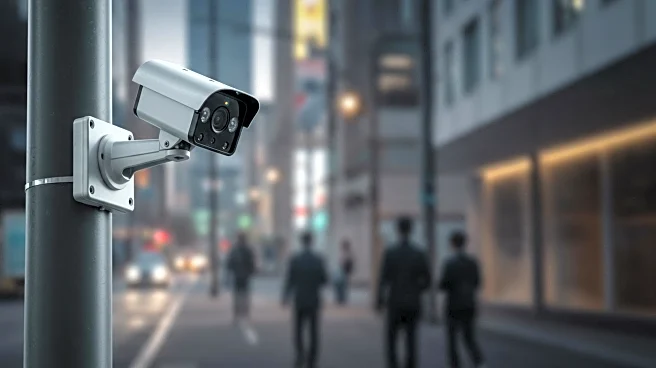What's Happening?
The UK government has announced the deployment of 10 new live facial recognition (LFR) vans across seven police forces, including Greater Manchester and West Yorkshire. Privacy groups, such as Big Brother Watch, have criticized this move, labeling it a significant expansion of the surveillance state. The Home Office plans to roll out further LFR capacity, despite calls for legislative safeguards. The technology has been used by London’s Metropolitan Police and South Wales Police, with claims of 580 arrests in a year. Privacy International has raised concerns about secretive searches of passport and immigration databases, arguing it infringes on fundamental rights.
Why It's Important?
The expansion of facial recognition technology raises significant privacy concerns, impacting civil liberties and public trust. Critics argue that without robust legislative safeguards, the technology could lead to unwarranted surveillance and data misuse. The controversy highlights the tension between law enforcement's need for effective tools and the public's right to privacy. The debate could influence future policy decisions and legal frameworks surrounding surveillance technologies, affecting how they are implemented and regulated.
What's Next?
The UK government plans to launch a consultation in the autumn to shape a new legal framework for facial recognition technology. Privacy groups are taking legal action against the government, challenging the use of LFR. The Information Commissioner’s Office will soon release findings from an audit of South Wales Police and Gwent Police, assessing compliance with data protection laws. These developments may lead to changes in how facial recognition is deployed and regulated in the UK.
Beyond the Headlines
The use of facial recognition technology touches on ethical and legal dimensions, including the balance between security and privacy. The expansion of surveillance capabilities could lead to long-term shifts in public policy and societal norms regarding privacy rights. The controversy may also influence international discussions on the use of biometric data and surveillance technologies.









